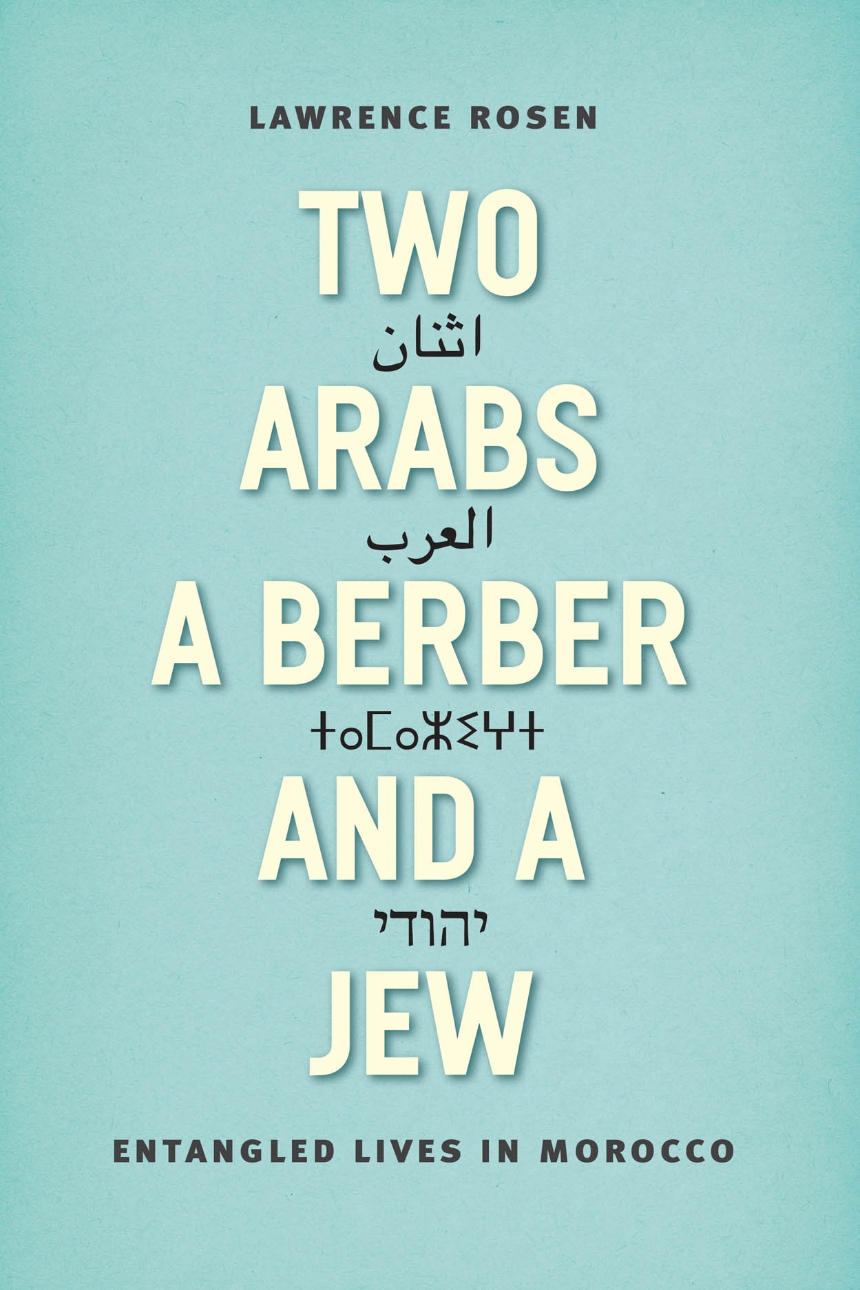Two Arabs, a Berber, and a Jew
Entangled Lives in Morocco
In this remarkable work by seasoned scholar Lawrence Rosen, we follow the fascinating intellectual developments of four ordinary Moroccans over the span of forty years. Walking and talking with Haj Hamed Britel, Yaghnik Driss, Hussein Qadir, and Shimon Benizri—in a country that, in a little over a century, has gone from an underdeveloped colonial outpost to a modern Arab country in the throes of economic growth and religious fervor—Rosen details a fascinating plurality of viewpoints on culture, history, and the ways both can be dramatically transformed.
Through the intellectual lives of these four men, this book explores a number of interpretative and theoretical issues that have made Arab culture distinct, especially in relationship to the West: how nothing is ever hard and fast, how everything is relational and always a product of negotiation. It showcases the vitality of the local in a global era, and it contrasts Arab notions of time, equality, and self with those in the West. Likewise, Rosen unveils his own entanglement in their world and the drive to keep the analysis of culture first and foremost, even as his own life enmeshes itself in those of his study. An exploration of faith, politics, history, and memory, this book highlights the world of everyday life in Arab society in ways that challenge common notions and stereotypes.
Through the intellectual lives of these four men, this book explores a number of interpretative and theoretical issues that have made Arab culture distinct, especially in relationship to the West: how nothing is ever hard and fast, how everything is relational and always a product of negotiation. It showcases the vitality of the local in a global era, and it contrasts Arab notions of time, equality, and self with those in the West. Likewise, Rosen unveils his own entanglement in their world and the drive to keep the analysis of culture first and foremost, even as his own life enmeshes itself in those of his study. An exploration of faith, politics, history, and memory, this book highlights the world of everyday life in Arab society in ways that challenge common notions and stereotypes.
400 pages | 62 halftones, 1 table | 6 x 9 | © 2015
Anthropology: Cultural and Social Anthropology
Culture Studies:
Religion: Islam
